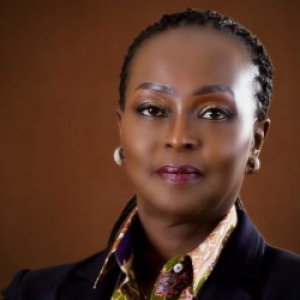It is a pleasure for me as the United Nations Resident Coordinator in Guyana to address this seminar on Intelligent and Inclusive Finance. I thank the Public Service Co-operative Credit Union and all organizers for extending an invitation to the United Nations.
Inclusive and equitable access to finance is an important area of work for the United Nations and a key ambition of the 2030 Agenda. It is closely linked to several Sustainable Development Goals, including SDG1 on eradicating poverty; SDG 2 on ending hunger and promoting sustainable agriculture; SDG 3 on health and well-being; SDG 5 on gender equality and women‘s empowerment; SDG 8 on promoting economic growth and jobs; SDG 9 on innovation and industry; and SDG 10 on reducing inequality.
As such, inclusive finance is a powerful tool to help address persistent and prevalent development and socio-economic gaps around the world - including inequalities between women and men, between urban and rural populations, and between the rich and the poor.
Inclusive finance is also recognized and emphasized as a key lever to accelerate financing for development more broadly. This is underlined, for example, in the most recent global report on Financing for Sustainable Development, published by the UN Department of Economic and Social Affairs (DESA), as well as in the preparations and preliminary reports ahead of the upcoming Fourth International Conference on Financing for Development – FfD 4 – taking place this July in Spain.
Inclusive finance is essentially a response to a rather uncomfortable truth: that modern financial systems have, for too long, disproportionately benefited owners of capital, with decisions traditionally underpinned by models focused solely on financial returns, accounting profit and loss - without accounting for impacts on non-transacting parties, social cohesion or the environment. Inclusive finance is about creating a healthier financial system - one that promotes equal opportunity and access, and one that enables and rewards investments aligned with the Sustainable Development Goals and the vision set out in Agenda 2030.
It is also about ensuring that the financial system benefits everyone and that no one is left behind. This is why inclusive finance spans a broad spectrum of initiatives - from building financial literacy among youth, securing access to basic banking services for all and providing financing for small-scale enterprises, to supporting large-scale green infrastructure investments for a just and sustainable transition, and establishing viable, attractive financing terms for businesses and entrepreneurs committed to environmental, social and governance (ESG) standards.
Inclusive finance cuts across the work of many UN agencies - from UN Women’s efforts to support women entrepreneurs and improve financial literacy, to UNDP’s work on strengthening local capital markets and UNHCR’s initiatives to secure access to basic financial services for displaced populations.
International Year of Cooperatives
Indeed, as already mentioned, in June 2024 the UN General Assembly proclaimed 2025 as the International Year of Cooperatives, under the theme “Cooperatives Build a Better World.” This initiative highlights the vital role cooperatives play in addressing today’s global challenges and underscores their contributions across social, economic and environmental dimensions - essentially positioning cooperatives as key drivers of the SDGs and recognizing their important role as critical actors and stakeholders in sustainable development.
In essence, the campaign seeks to showcase cooperatives’ contributions to sustainable development and spark a new era of cooperative-driven development. Some of the specific objectives of the International Year of Cooperatives include raising public awareness of how cooperatives reduce poverty and foster inclusive growth, promoting the growth and development of cooperative enterprises, advocating for supportive frameworks and inspiring leadership and youth engagement in the cooperative movement. Key partners to the initiative include members of the Committee for the Promotion and Advancement of Cooperatives, including the UN, the International Cooperative Alliance, ILO and FAO, to name only a handful.
Role of Cooperatives for Inclusive Finance
Clearly, the business model of financial cooperatives such as credit unions, rooted in cooperation, equity, social cohesion and community-driven development, aligns exceptionally well with the objectives of inclusive and sustainable finance, which seek to leverage finance for sustainable development that benefits everyone. By pooling resources and operating on a not-for-profit (or last not-only-for-profit) or member-driven basis, cooperative credit unions help mobilize local savings and extend credit across a wide range of members - from small entrepreneurs and farmers to salaried workers, civil servants, and professionals, enabling people to invest in housing, education and small business ventures, and to build financial security and resilience over time. Furthermore, their responsiveness to local needs makes them strong partners in strengthening national financial systems and advancing more inclusive and sustainable economic development.
Once again, thank you for inviting me to participate today. I wish you a very successful and fruitful seminar, and I remain hopeful that some of the conclusions reached here may open the door for us to deepen our cooperation on inclusive finance in Guyana. The United Nations would welcome further discussions on how to strengthen financial cooperatives in the country. Thank you.









